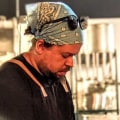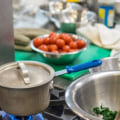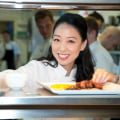Food science is an ever-evolving field that offers a wide range of career opportunities. From product development to food safety and quality, food microbiology to sensory science, and food engineering to flavorists, the possibilities are endless. With a degree in food science, you can explore a variety of career paths and find the perfect job for you. Product development is an important and rapidly growing subfield of the food industry.
Product developers may work independently or with others, and often meet with consumers in focus groups to provide employers with valuable information. Food safety is a key area of focus for product development, as it involves preventing pathogens from entering the food supply. Although it is impossible to completely eliminate microorganisms from any food, there are steps that can be taken to slow their growth or inactivate them. Food microbiology is the study of how microorganisms interact with food.
This includes bacteria, molds, yeasts, and viruses. It is important to understand how these microorganisms can cause food to deteriorate, as well as how they can be used to create new products. Fermentation scientists help optimize and control the production of beer, cheese, and other food fermentations. Sensory scientists explore how humans interact with food at a sensory level, including taste, touch, sound, appearance, and texture.
Food vendors may have a degree in business or marketing at either the bachelor's or master's level. Food chemists can find employment in food manufacturers, restaurants, research institutes, and even government agencies. Food engineers develop concepts that processors use to convert raw materials into safe and durable foods. They create recipes that shoppers can use at home to transform packaged foods into delicious meals and desserts.
Flavorists specialize in creating flavors for food products and their salaries can vary depending on employment conditions. Animal lovers may be interested in a career path within food science that is both interesting and lucrative. Brian Thane, member of the Institute of Food Technologists (IFT), director of aseptic technology at Tetra Park, talks about supplying aseptic packaging to 170 countries and his contributions to the profession of food science. Michele Perchonok, another IFT member and former director of Advanced Food Technology at NASA, guides us through her work at the Space Food Systems Laboratory and describes her role in conceptualizing and preparing food for successful missions in space. All foods are biochemicals because they are or were living entities. Food science is an academic field that requires rigorous study in high-level topics such as mathematics, chemistry, microbiology, and more.







Leave a Comment